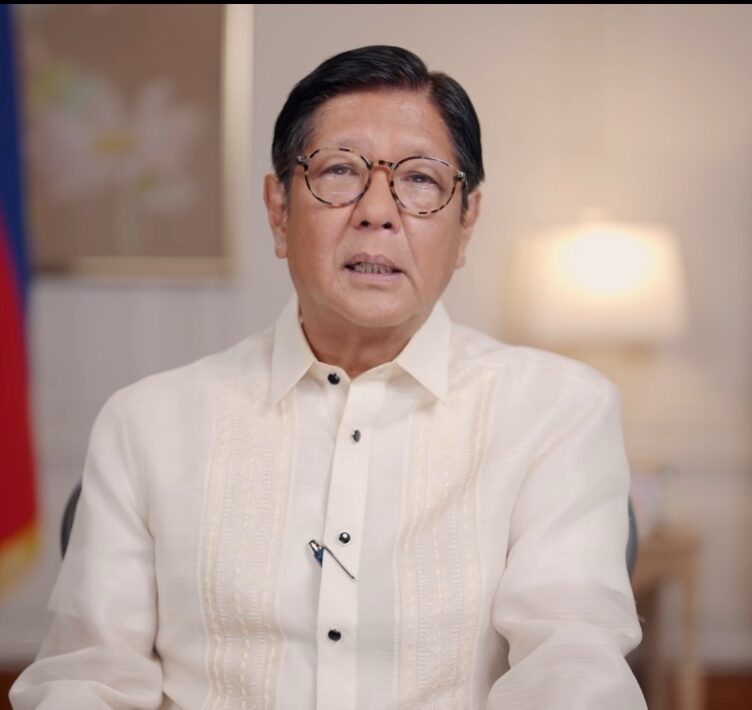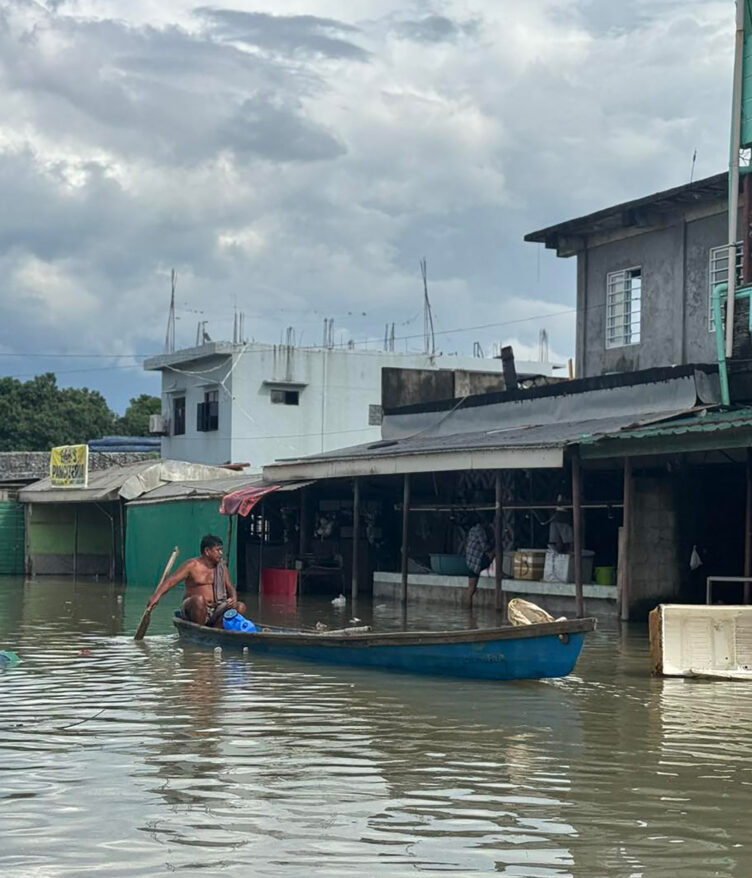NO longer just the future, Millennials and Gen Zs have taken charge of the present, showing as a force that influenced the outcome of the recent 2025 midterm elections.
Backed by digital savvy, social consciousness, and a collective frustration with the old ways of doing things, the Filipino youth today have clearly turned their ballots in a bold statement. What was once a minority demographic is now an enduring presence at the polls.
They made it clear that they’re here not only to vote, but also to take the wheel of the nation’s future as well.
To dig deeper and understand more about the Millennial and Gen Z voters who are taking over the responsibilities of dealing with Philippine politics, republicasia sat down with Asst. Professor Ronald M. Castillo, a returning political science professor from University of Santo Tomas.
How Gen Z’s Online World Shapes Their Politics
Gen Z and Millennials reshaped the election by supporting candidates whose platforms directly addressed their pressing economic and social concerns.
“One of the things I’ve observed that appeals to a person and of course based on political theory is self-interest. When we make decisions, we usually make decisions on how something would affect us,” explained Professor Castillo.
“Of course these are the noble ideas of when we make our decisions, we should be making decisions based on how this would affect others and a community, right? But the reality is, a person is voting, goes to a precinct and places their vote. And the first thing that would come to mind is the self. That’s real.”
It is no surprise, then, that the younger generation opted for candidates whose platforms addressed concerns that immediately impact their lives.
Take, for example, education. Bam Aquino’s strong showing in the polls—securing second place—can be largely attributed to his association with the Universal Access to Quality Tertiary Education Act, which he authored. This law resonated deeply with young voters who see affordable education as a key to unlocking their future.
Another pressing issue for many voters—especially younger ones—is their economic situation.
“And the most real at this time is the rampant inflation and the increasing, rather correction, the decreasing capacity of a person’s purchasing power. Your capacity to put stuff in your basket when you go to the market,” said Professor Castillo.
He pointed out that most Millennials, and particularly Gen Zs, are likely in their first jobs, often entry-level positions with minimum or low wages. As a result, they are at the forefront of feeling the full impact of inflation on their daily lives and purchasing power.
“So if you’re a person going to vote, are you going to vote for someone who has contributed to the decreasing of your capacity to purchase? Right? So I do believe that’s something that has affected the analytical minds of Gen Z.”
This focus on tangible, relatable issues marks a shift from traditional politics centered on personality or patronage.
Instead, younger voters are demanding accountability and policies that reflect their lived experiences—shaping not just election outcomes but the future direction of Philippine governance.
On the Decline of Celebrity Politics
Speaking of patronage politics, many celebrated this recent election as a sign of the declining influence of celebrity power in politics.
Several ‘artista’ candidates without concrete platforms lost their bids, reinforcing the view that voters—especially younger ones who make up the majority—are increasingly moving away from celebrity-driven politics and instead voting based on track records and substantive platforms.
“One of the things we also have to consider is the exposure of communities to a decay in celebrity quality in terms of intellectual capacity. You would see celebrity going on stage and then they would do budots,” said Professor Castillo.
Although such acts once helped candidates secure spots in the top 12, history has shown they rarely translated into meaningful solutions that satisfy the public.
Many feel frustrated by past promises made by celebrity candidates that failed to deliver real change. The glamor and popularity that once swayed voters are no longer enough to mask ineffective governance or empty rhetoric.
Instead, young voters are demanding authenticity, accountability, and clear policy agendas that address their immediate needs—whether in education, employment, or economic relief.
This impatience with the status quo reflects a broader desire for political maturity among Millennials and Gen Zs. They want leaders who not only capture attention but also understand and act on the complex challenges their generation faces.
We can also factor in how the rampant use of social media has made Gen Z far more politically socialized than previous generations.
“One of the important characteristics of the Gen Z community is being network citizens sa internet, digital citizens,” shared Professor Castillo.
“The significance of these characteristics gives Gen Z power to communicate and this communication is one of the significant elements of politics, which we call political socialization. So when we politically socialize, that is the process where we transfer political values from us to another person, or one agent to another,” he added.
“This allows for the proliferation of ideas.”
Unlike older voters who relied mainly on traditional media, many young Filipinos today are exposed to a wide range of alternative ideas and perspectives through online platforms.
This constant flow of information—and misinformation—has sharpened their critical thinking, prompting them to question long-held political narratives and seek candidates who offer more than just popularity.
Forecast: The 2028 Elections
As social media buzzes with debates about the 2025 elections, opinions remain divided. Some take a more pessimistic stance, arguing that the results do not necessarily reflect a political awakening among Filipinos or a meaningful assertion of voice by the younger generation.
They contend that the success of progressive candidates was driven less by ideological alignment and more by strategic use of political machinery—particularly by those who knew how to navigate and exploit the internet. In this view, the outcome was not so much about genuine change, but about who played the digital game best.
On the other hand, voices like University of the Philippines Diliman sociologist Professor Ash Presto caution against entirely dismissing the agency of voters.
While acknowledging that political machinery continues to dominate Philippine politics, Presto emphasizes that the act of voting cannot be reduced to the strategies of candidates alone. It also reflects the real desires and choices of an electorate that is becoming increasingly informed and politically socialized—especially among the youth.
Professor Castillo aligns with Presto’s perspective. But like her, he also warns of the potential recalibration of political machinery in response to the 2025 outcomes—particularly with the 2028 elections in sight.
“Actually, both opinions are not exclusive from each other. The political machinery does exist. Nakita na natin ‘yan e, the machinery is huge and marching in progression, and it’s scary,” warned Professor Castillo.
“What do they mean by that? Nobel Prize winner Maria Ressa in Rappler was able to map out the network of disinformation and trolls. It’s a very interactive map of social networks—from this point to this point, so many other parts. I actually used a similar thing for my own dissertation,” he said.
Looking ahead to 2028, it’s likely that the same machinery of trolls and disinformation will continue to operate—perhaps even more aggressively. Especially now that the political battleground has fully shifted from the streets, television, and traditional media into the digital realm.
“Another part of the. Political machinery is the political party that they have, and the alliances that they already have. That’s part of the machinery,” Professor Castillo further expounded.
By calling this “part of the machinery,” Professor Castillo underscores that electoral success is not driven solely by online tactics but also by deeply rooted political structures operating behind the scenes.
These entrenched alliances and party affiliations often determine a candidate’s viability long before any public campaigning begins.
One clear sign that the political machinery is recalibrating is the ongoing reshuffling of alliances and partylists—developments that are already becoming visible today.
Professor Castillo also issued a warning to voters—especially the youth, who now make up the majority of the electorate—to remain vigilant and critical. He emphasized that political machinery will inevitably target them, recognizing their growing electoral influence.
He also cautioned against potential attacks on institutions that serve as agents of political socialization, such as schools, which play a crucial role in shaping informed and engaged citizens.
“The school is one of the powerful agents of political socialization. So if we have damaged the sources of political socialization, then the flow of how we are as engaged—politically engaged— Filipinos will be damaged,” he warned.
It’s Not Over Yet
The youth vote may have shaken the system in 2025, but the battle is far from over. While Millennials and Gen Z have proven they can tilt the scales, the machinery they’re up against is already adapting—retooling its tactics, reshaping alliances, and preparing to reclaim control.
That’s why this moment shouldn’t be treated as a celebratory finish line, but as a wake-up call. The digital generation is now the dominant voting bloc, but with that power comes responsibility. The trolls will return, the disinformation will evolve, and the political machinery will be back—sharper, louder, and more calculated.
It learns from its mistakes. And so must we.
The challenge for young voters now isn’t just to show up every three years. It’s to stay engaged, stay informed, and protect the spaces—online and offline—where real political learning happens.
Because in the face of recalibrating power, critical thinking isn’t just resistance. It’s survival.
How useful was this post?
Click on a star to rate it!
Average rating 4 / 5. Vote count: 1
No votes so far! Be the first to rate this post.
We are sorry that this post was not useful for you!
Let us improve this post!
Tell us how we can improve this post?







